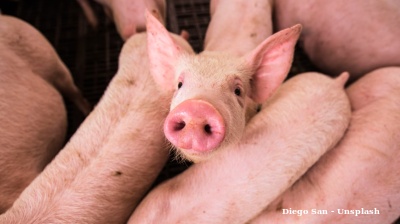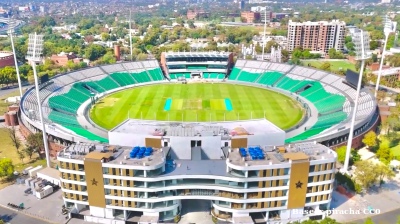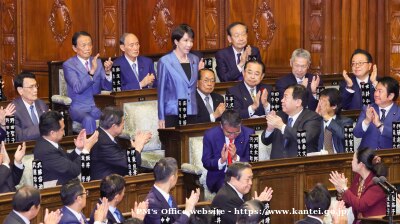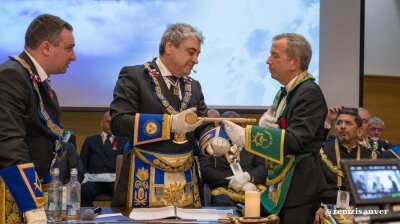Slovenian President Borut Pahor started his reelection campaign in an unorthodox manner, embarking on a walking tour of the country, and encouraging ordinary Slovenians to join him for part of the journey as he hiked 40km a day.
The highly Instagrammable walking holiday was in keeping with Pahor’s personal and proactive approach to politics that has earned him the title “the king of Instagram” as well as a reputation as the most modern president in the Western Balkans. His high online profile and habit of documenting every photogenic moment on social media have also ensured he has remained very much in the public consciousness, despite the largely ceremonial role of the presidency, and have put him on track for re-election on October 22.
Indeed the latest poll from agency Episcenter conducted between October 5 and 13 indicates Pahor will win the election in the first round with 55.5% of the vote, Slovenian Press Agency (STA) reported. This would be an improvement on his first presidential election victory in 2012 when the voting went to a second round, even though he managed to trounce the incumbent Danilo Turk in the run-off.
This time around, the long-distance runner — Pahor is a regular participant in the annual Ljubljana marathon — has a clear lead in the field of nine candidates, five of whom are women. He is also the only non-party candidate in the race.
Pahor’s closest competitor is Marjan Sarec, a young Slovenian politician who is turning 40 in December. Since 2010, he served as Kamnik mayor, after working as a journalist at the public broadcaster RTV Slovenija. He is best known in public as an impersonator in political satire shows on TV and radio, according to STA.
Sarec has consistently taken second place in recent polls, at one time looking as if he would force a second round, but since then Pahor’s lead has grown. Another relatively strong contender is Ljudmila Novak, the leader of the conservative opposition party New Slovenia (NSi), who polls indicate is likely to come in third.
Still, none of the other candidates look like presenting a serious challenge to Pahor as he presides over a revival of economic growth in the country; Slovenia’s economic contraction during the first two years of his presidency was followed by a turnaround in 2014 and since then growth in the export-oriented country has remained at around 3% a year.
As president, Pahor has little to do with the economy, but the feel good factor has helped boost his popularity. And this is naturally fuelled by his own publicity on Instagram, where the former model is pictured in a variety of poses attending state events, hiking, running marathons and generally exuding positive vibes and charisma.
The pre-election walking tour of the country, from Goricko in the northeast to Piran on the southwest coast, was another example of how he has gone directly to the people, eschewing the formal channels used by more traditional politicians. He took a similar approach ahead of his first election when he joined blue-collar workers to do their job for a day, testing his skills as a butcher, hairdresser, mechanic, construction worker and shop assistant, blending politics with reality TV to great effect.
Not that everyone is impressed by this. A poll conducted by bne IntelliNews on Facebook finds a wide variety of opposing opinions of the Slovenian president.
One user who identified themselves as 'JL' said that Pahor had “something special”. “The fact that he went to ordinary people … is a great move for me and it really doesn’t matter if some people make jokes about him because of that. Thanks to that, he can win again,” 'JL' said. “I like him because of his open mind which speaks loudly that Slovenia has to be open in all areas. He just needs to make it all real.”
Others, however, see some of Pahor’s actions as comical. “Most of his public appearances, pictures and similar things, have been seen by many in my family as a joke, many of them have laughed to him… Maybe he has tried to show himself as one of the ordinary people but it seems to me that so many times it went in the wrong direction,” 'BP' told bne IntelliNews.
Yet another Facebook user, 'MC' accused Pahor of “degrading” the office of president when he tried to get close to the people “and was ‘transformed into a dustman, a chef, a fireman…”
However, 'MC' still believes Pahor will prevail on October 22. “He does not have competition and will win the elections. In my opinion, in the second round, because he will be short by a few percent,” MC told bne Intellinews in a Facebook interview.
Path to the presidency
For an often unconventional politician, Pahor arrived at the presidency by a fairly conventional route. Despite his youthful stint as a model — when he reportedly met US first lady Melania Trump, another Slovenian ex-model —he was part of Slovenia’s political scene even before the country became an independent state in 1991.
Ever since he was elected as a deputy to the National Assembly in 1992, he has consistently pursued the country’s Euro-Atlantic integration, and pushed for its membership in the EU and Nato. As an MP, he served, for example, on the parliament’s commission for EU affairs and led Slovenia's delegation to the Parliamentary Assembly of the Council of Europe (PACE), become becoming a member of the European parliament in 2004.
His later career as prime minister of Slovenia was less illustrious. Coming to power in November 2008, he served less than three years before losing a confidence vote in September 2011. His tenure as prime minister was also marked by one of the Eurozone's deepest recessions with Slovenia’s GDP shrinking more than 7.8% in 2009. Two years after he left office, Slovenia’s largest banks had to be bailed out by the state.
As president, the centre-left Pahor has continued to be a staunch believer in ever closer union within Europe, says his biography on the presidency’s website.
“He sees the future in a more closely integrated Europe, competitive in the global market and better equipped for coping with global challenges,” says the site. “President Pahor sees a long term vision in the so-called ‘United States of Europe’, a sui generis political Union founded on the consensus of all its citizens.”
This puts him in stark contrast to the shift towards populist euroscepticism among many of the political leaders in the nearby Visegrad Four states. Under Pahor and Prime Minister Miro Cerar, Slovenia — the first state from the SEE region to join the EU and the only one to have adopted the euro so far — promises continuity as a small but staunch member of the Euro-Atlantic camp.
News

Taiwan confirms first African swine fever outbreak
Authorities detected the virus on a pig farm in Wuqi District, Taichung, after 117 pigs died between October 10 and 20.

Afghanistan withdraws from Pakistan tri-nation T20 to protest murder of three local cricketers
The Afghanistan Cricket Board says it has secured clear video footage implicating the Pakistan state in an attack that killed three local cricketers.

Sanae Takaichi makes history as Japan’s first female prime minister
In her first press briefing as leader, the 64-year-old pledged to drive reform with confidence and determination, describing her administration as one “ready to decide and move forward.”

White House halts plans for Trump-Putin summit in Budapest
Anonymous White House official tells AFP there are “no plans” for Trump to meet Putin “in the immediate future”, effectively shelving a Budapest gathering that Trump had described as imminent only days earlier.




